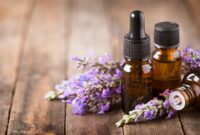Embark on a journey of natural skincare as we delve into the world of natural oils for skin. These nourishing elixirs hold the key to unlocking a radiant, healthy complexion, offering a plethora of benefits that will transform your skincare routine.
Natural oils are nature’s gift to our skin, providing essential nutrients and protective barriers that enhance its appearance and well-being. Discover the secrets of these plant-based treasures and unlock the power of nature for a glowing, youthful visage.
Natural Oils for Skin: An Overview

Natural oils have been revered for centuries for their remarkable ability to nourish, protect, and enhance the skin’s appearance. Derived from plants, seeds, and nuts, these oils are rich in vitamins, antioxidants, and essential fatty acids that are essential for maintaining healthy, radiant skin.
The benefits of using natural oils for skin care are multifaceted. They help to:
- Hydrate and moisturize the skin, preventing dryness and flakiness.
- Protect the skin from environmental stressors such as pollution and UV radiation.
- Reduce inflammation and soothe irritated skin.
- Promote collagen production, improving skin elasticity and firmness.
- Balance the skin’s natural oil production, preventing both dryness and acne.
Types of Natural Oils
There are countless natural oils available, each with its unique properties and benefits. Some of the most popular and versatile oils for skin care include:
- Jojoba oil:Similar to the skin’s natural sebum, jojoba oil is excellent for balancing oil production and moisturizing the skin.
- Argan oil:Rich in antioxidants and fatty acids, argan oil is known for its anti-aging and nourishing properties.
- Coconut oil:Antibacterial and antifungal, coconut oil is a versatile oil that can be used as a moisturizer, makeup remover, and hair treatment.
- Rosehip oil:High in vitamin C and essential fatty acids, rosehip oil is excellent for reducing inflammation and promoting skin regeneration.
- Tea tree oil:Antiseptic and antimicrobial, tea tree oil is ideal for treating acne and other skin infections.
Benefits of Natural Oils for Skin

Natural oils offer a myriad of benefits for skin health, from deep hydration to protection against premature aging. Their unique properties make them ideal for addressing various skin concerns and promoting a healthy, radiant complexion.
Moisturizing and Hydrating Effects
Natural oils are rich in fatty acids, which act as a protective barrier on the skin’s surface. They help lock in moisture, preventing dehydration and dryness. This moisturizing effect is particularly beneficial for individuals with dry, sensitive, or mature skin types.
Balancing the Skin’s Natural Oil Production
Natural oils can help regulate the skin’s natural oil production. They contain linoleic acid, which is essential for maintaining a healthy balance of oils. When the skin is properly balanced, it produces less excess oil, reducing the appearance of blemishes and promoting a clearer complexion.
Anti-Aging and Antioxidant Properties
Many natural oils are rich in antioxidants, which help protect the skin from environmental stressors and free radicals. These antioxidants combat oxidative damage, which can lead to premature aging. By neutralizing free radicals, natural oils help preserve the skin’s elasticity and reduce the appearance of wrinkles and fine lines.
Types of Natural Oils for Skin

Natural oils offer a wide range of benefits for the skin. They are rich in vitamins, minerals, and antioxidants that nourish and protect the skin from damage. Different oils have varying properties and are suitable for different skin types.
Table of Natural Oils for Skin
The following table lists some of the most popular natural oils for skin, their skin type suitability, key properties, and potential uses:
| Oil Name | Skin Type Suitability | Key Properties | Potential Uses |
|---|---|---|---|
| Argan Oil | All skin types | Rich in antioxidants, vitamin E, and fatty acids | Moisturizing, anti-aging, wound healing |
| Jojoba Oil | All skin types, especially oily skin | Similar to the skin’s natural sebum, non-comedogenic | Balancing, moisturizing, anti-inflammatory |
| Coconut Oil | Dry, sensitive skin | Antibacterial, anti-inflammatory, moisturizing | Moisturizing, antibacterial, wound healing |
| Rosehip Oil | Dry, mature skin | Rich in vitamin C, antioxidants, and essential fatty acids | Anti-aging, moisturizing, scar reducing |
| Tea Tree Oil | Acne-prone skin | Antibacterial, anti-inflammatory, antifungal | Treating acne, reducing inflammation, calming skin |
How to Use Natural Oils for Skin

Incorporating natural oils into your skincare routine can be a simple and effective way to nourish and enhance your skin’s health. Here’s a guide to help you use natural oils effectively:
Choose the Right Oils for Your Skin Type:Different skin types require different oils. For oily skin, choose lightweight oils like jojoba or grapeseed oil. For dry skin, opt for heavier oils like coconut or argan oil. For sensitive skin, consider hypoallergenic oils like almond or rosehip oil.
Direct Application
Directly apply a few drops of natural oil to cleansed, slightly damp skin. Massage gently in circular motions until absorbed. This method is suitable for most skin types and allows for targeted application to specific areas.
Mixing with Other Products, Natural oils for skin
Mix a few drops of natural oil into your favorite moisturizer, serum, or cleanser. This dilutes the oil and makes it suitable for all skin types. It also enhances the benefits of your existing skincare products.
Carrier Oil
Use natural oils as a carrier oil to dilute essential oils before applying them to the skin. Carrier oils help to reduce the potency of essential oils and prevent skin irritation.
Precautions and Considerations: Natural Oils For Skin

Incorporating natural oils into your skincare routine can be beneficial, but it’s crucial to approach their use with caution. Certain precautions should be taken to ensure a safe and effective experience.
Patch Testing
Before applying any new natural oil to your face or body, perform a patch test. Apply a small amount of the oil to a small area of skin on the inside of your forearm. Wait 24-48 hours to observe any reactions, such as redness, irritation, or itching.
If no adverse effects occur, it’s generally safe to use the oil on a larger area of skin.
Allergies and Sensitivities
Some individuals may be allergic or sensitive to certain natural oils. If you have a history of allergies or sensitive skin, it’s essential to research and avoid oils that are known to trigger reactions in your skin type. Consult a dermatologist if you have concerns about potential allergies or sensitivities.
Interactions with Other Products
Certain natural oils may interact with other skincare products or medications you’re using. For example, some oils, such as tea tree oil, can interact with blood thinners, increasing the risk of bleeding. It’s advisable to consult a healthcare professional before using natural oils if you’re taking any medications or using other skincare products.
Epilogue

Incorporating natural oils into your skincare regimen is a transformative step towards achieving healthy, radiant skin. Their versatility and efficacy make them a must-have for anyone seeking a natural and effective approach to skincare. Embrace the power of nature and witness the remarkable benefits that natural oils have to offer.
Key Questions Answered
Can natural oils clog pores?
Certain natural oils, such as coconut oil and olive oil, may be comedogenic for some skin types and can potentially clog pores. However, many other natural oils, such as jojoba oil and argan oil, are non-comedogenic and suitable for all skin types.
How often should I use natural oils on my skin?
The frequency of use depends on your skin type and the specific oil being used. For most skin types, applying natural oils once or twice a day is sufficient. However, if you have oily skin, you may want to use them less frequently.
Can I mix natural oils with other skincare products?
Yes, you can mix natural oils with other skincare products, such as moisturizers, serums, and masks. This can help enhance the benefits of your skincare routine and create a customized solution for your skin’s needs.


